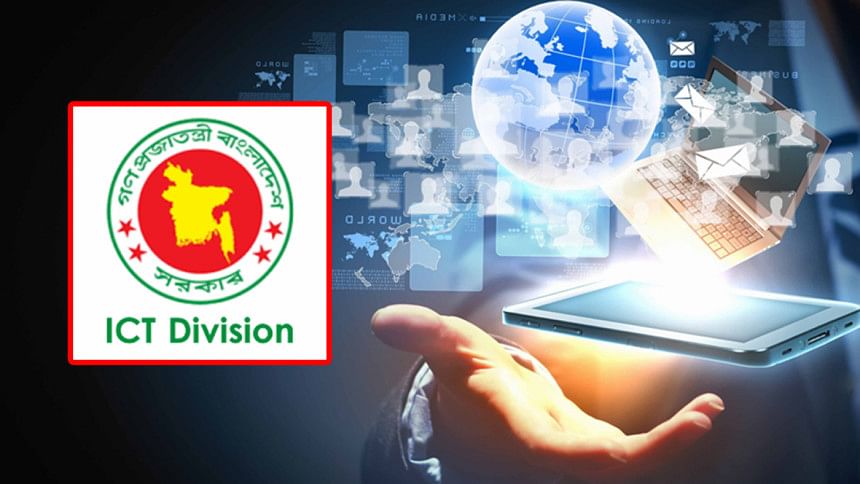ICT experts demand taskforce to reduce data prices urgently

Telecom and ICT industry experts yesterday proposed the formation of a specialised taskforce to urgently address the high cost of mobile and broadband data in Bangladesh.
Comprising telecom and technology specialists, the proposed taskforce's primary goal will be to develop strategies to reduce data prices within the next three months to make internet access more affordable for millions of users.
The recommendation was made during a roundtable discussion, titled "The Use of Technology for Inclusive Development: A New Journey", organised by the Tech Industry Policy Advocacy Platform (TIPAP) at the Bishwo Shahitto Kendro auditorium in the capital.
Fahim Mashroor, former president of the Bangladesh Association of Software and Information Services (BASIS), presented a paper with a 20-point recommendation to the interim government, aimed at boosting internet accessibility and improving digital infrastructure.
One significant suggestion was the creation of an expert committee to analyse various components of internet service in Bangladesh. The committee will focus on eliminating monopolistic practices, reducing operational costs, and fostering healthy competition, ultimately ensuring more affordable internet for all, he said.
Another crucial recommendation was the development of a coordinated plan to help low-income citizens acquire smartphones with minimal or zero down payments.
The initiative would involve telecom companies working in partnership with financial institutions to make smartphones more accessible, thereby bridging the digital divide.
He also called for the introduction of toll-free numbers for essential citizen services, similar to those in developed nations.
This would include services like healthcare, education, legal aid, and complaint filing.
By ensuring these services are free to access, the goal is to make them more widely available to the general public by removing financial barriers that may currently exist, he added.
Addressing data usage issues, the paper highlighted that many mobile users cannot access critical apps such as mobile financial services like bKash or Nagad or ride-hailing services such as Pathao or Uber when their data balance runs low.
To counter this, the roundtable recommended that telecom operators work with app developers to ensure that essential services remain accessible even without an active data plan. This could be achieved through subsidy programmes or cost-sharing models, as seen in other countries.
Mashroor emphasised the need to ensure the availability of 4G technology nationwide while accelerating the rollout of 5G services.
Cybersecurity concerns were also raised, especially in light of recent hacking incidents involving national data infrastructure.
The proposal called for the formation of a dedicated expert committee to investigate these incidents and recommend immediate action to enhance cybersecurity.
The committee would report back within a month with strategies for securing sensitive data, particularly in critical sectors like banking.
A taskforce of industry experts and entrepreneurs should be formed to address the challenges faced by freelancers, such as payment issues and access to incentives.
The proposals include introducing global payment platforms like PayPal and Stripe, reducing import duties on essential equipment and exempting freelancers from income taxes for the next decade.
Additionally, measures should be taken to simplify the process of repatriating foreign earnings and making international payments.
Mahtab Uddin Ahmed, a former CEO of Robi Axiata, highlighted that a swift reform could start with the abolishment of the International Gateway Operators Forum within a month, ending discriminatory revenue-sharing and ensuring call terminations at actual rates, benefiting all parties.
However, deeper reforms, such as restructuring licensing layers, require cancelling or not renewing licences, a complex process, he said.
Mustafa Mahmud Hussain, a telecom expert, underscored the pressing need to develop more purposeful local content, highlighting that 70-75 percent of internet usage in Bangladesh is consumed by entertainment platforms.
He advocated for a shift towards content that drives learning, fosters personal development, and supports economic growth, ultimately contributing to the nation's broader progress.
Mahmud Hossain, a commissioner of the Bangladesh Telecommunication Regulatory Commission (BTRC), said 39 percent of mobile users' expenses are collected by the National Board of Revenue (NBR). The BTRC takes 5.5 percent of the revenue and 1 percent is received by the Social Obligation Fund.
He mentioned that the intermediary was created by the BTRC through the International Long Distance Telecommunications Services (ILDTS) policy in 2007. "This was probably done to address the needs of that time. I believe it should be revisited now."
He said the BTRC has taken the initiative to discuss it with stakeholders.
Ashik Chowdhury, executive chairman at the Bangladesh Investment Development Authority (Bida), said that a business advisory council will soon be established, comprising industry leaders.
The council will provide recommendations on strategies to increase both domestic and foreign investment, leading to the creation of actionable plans, he said.

 For all latest news, follow The Daily Star's Google News channel.
For all latest news, follow The Daily Star's Google News channel. 



Comments